Victory gardens
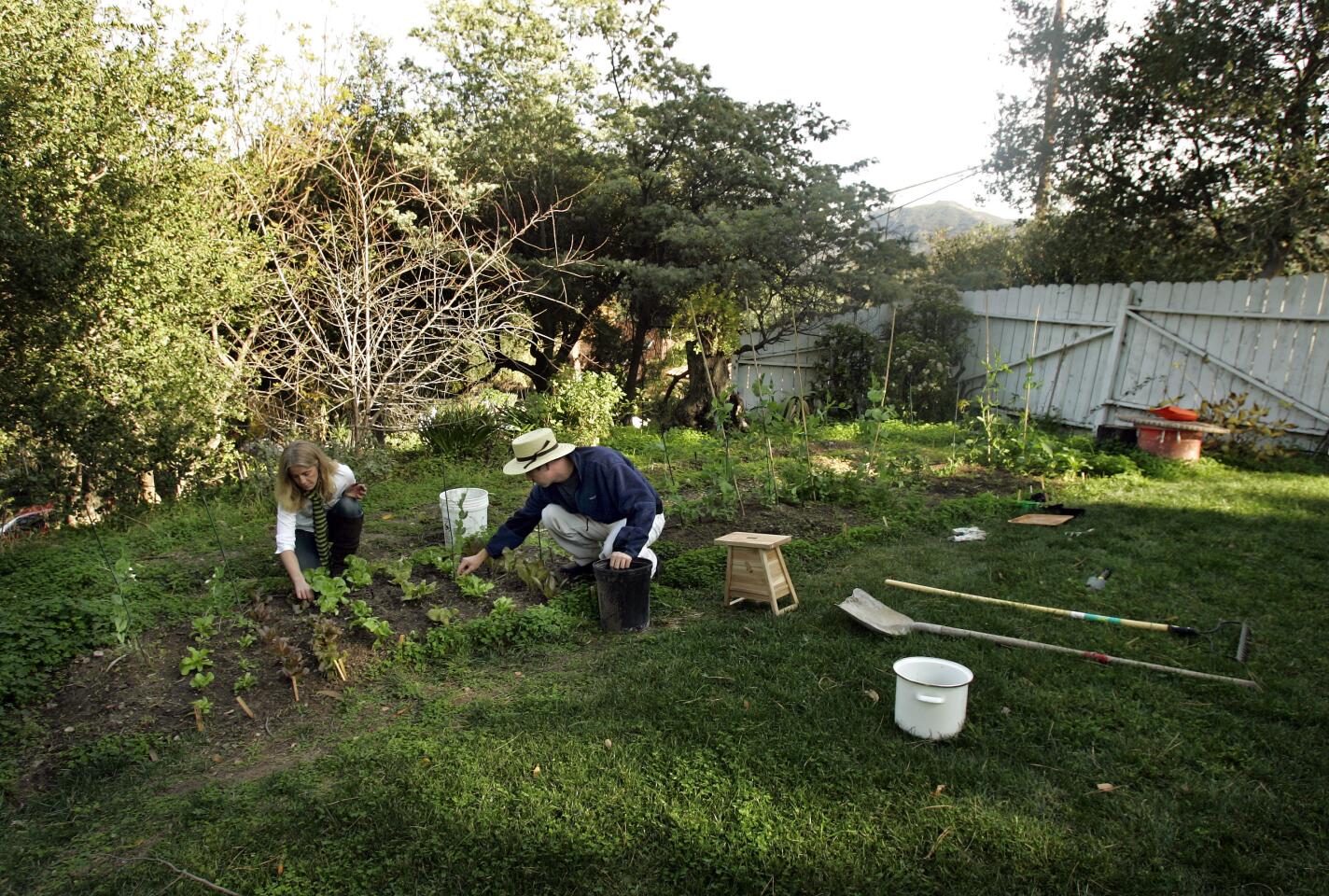
Julie Stern and neighbor Christo Brock work together in Sterns organic garden in Topanga Canyon. Decades ago, victory gardens planted at the behest of the federal government helped the United States cope with food shortages during World War II. Now, in backyards and community gardens, and of course on the Internet, a new victory garden movement has captured the attention of people who want to lessen their reliance on mass-produced or imported food, reduce their carbon footprint or save on their grocery bills in a fractured economic climate. (Ricardo DeAratanha / Los Angeles Times)
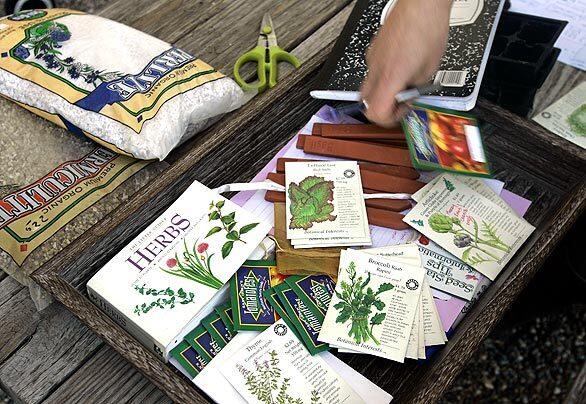
In October, Stern and Brock started leeks, peas, beets, carrots and a few other things from seed. At the W. Atlee Burpee & Co., sales of seeds for vegetables and herbs last year rose 40% compared with 2007, the company said. A spokeswoman cited spikes in food and gas prices, as well as worries about food safety and interest in organic food. (Ricardo DeAratanha / Los Angeles Times)
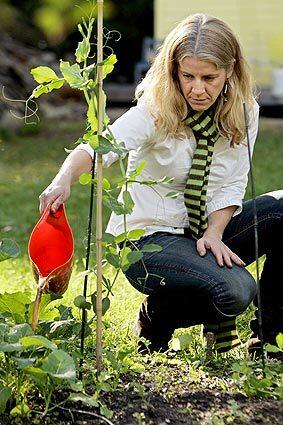
Julie Stern waters her organic vegetable garden with manure “tea,” a mix of manure and water. When the National Gardening Assn. compiles its annual data later this month, market research director Bruce Butterfield expects to see a 10% rise in food gardening for 2008. Based on anecdotal evidence and trends in past recessions, he expects even stronger growth this year. (Ricardo DeAratanha / Los Angeles Times)
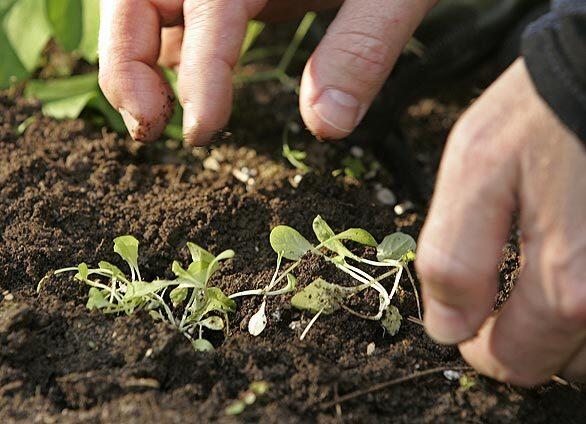
Christo Brock plants seedlings of mesclun mix in his neighbor Julie Stern’s organic garden. (Ricardo DeAratanha / Los Angeles Times)
Advertisement
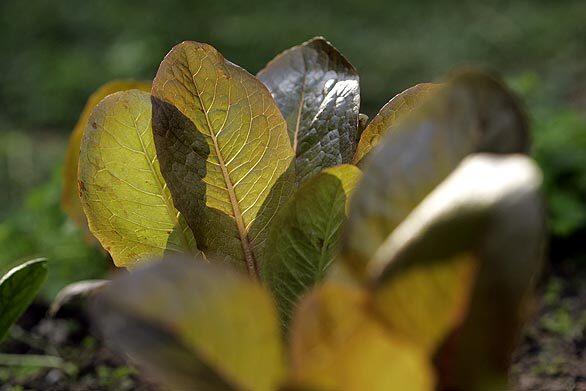
Romaine Rouge d’Hiver lettuce in Stern’s organic garden. (Ricardo DeAratanha / Los Angeles Times)
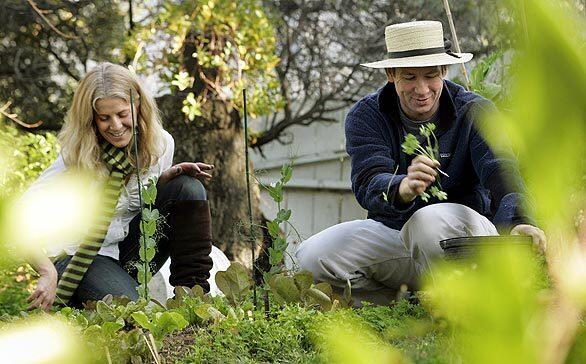
Stern and Brock gardening together in her organic garden. Though neither of them is poor, they enjoy their efforts. Growing your own garden is frugal, Brock says. I like that. (Ricardo DeAratanha / Los Angeles Times)
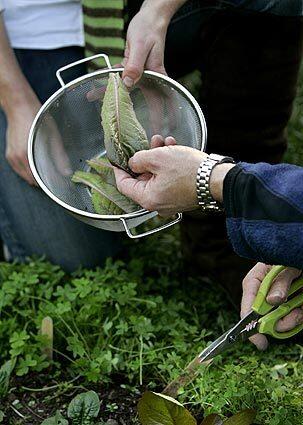
Stern and Brock picking romaine Rouge d’Hiver lettuce. (Ricardo DeAratanha / Los Angeles Times)
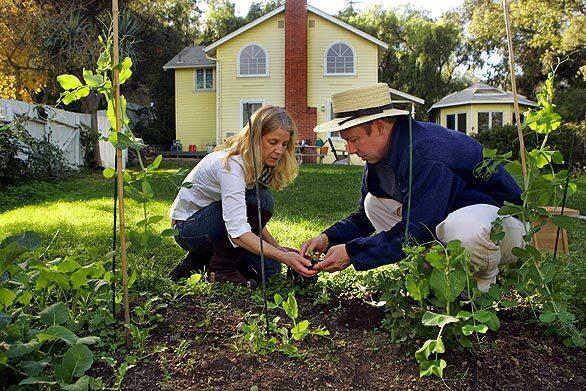
Stern and Brock say they were drawn to growing delicious food. Brock, a documentary filmmaker, doesn’t think of himself as a patriotic gardener, but he is worried about the future of the planet. “The produce from Chile -- it’s not ripe or it has no flavor. And now it has a big carbon footprint,” he said. (Ricardo DeAratanha / Los Angeles Times)
Advertisement
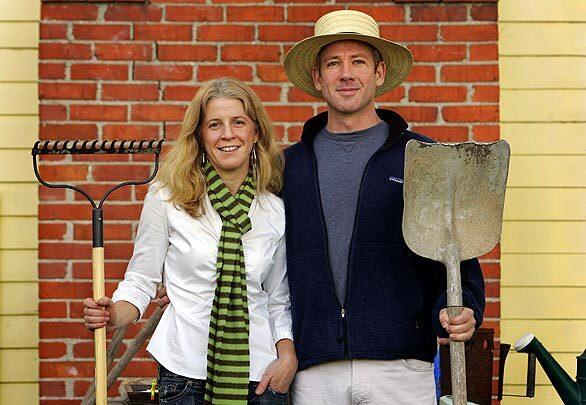
Stern and Brock strike a pose with their gardening tools. Charlie Nardozzi, senior horticulturist with the National Gardening Assn., said that after the second World War, gardening became mostly a hobby in the ‘50s and ‘60s. But then came the “back to the land” movement of the 1970s, when growing food again had serious purpose. It petered out in the ‘80s and ‘90s but has surged again today, buoyed by philosophical issues as well as economic ones, Nardozzi said. (Ricardo DeAratanha / Los Angeles Times)
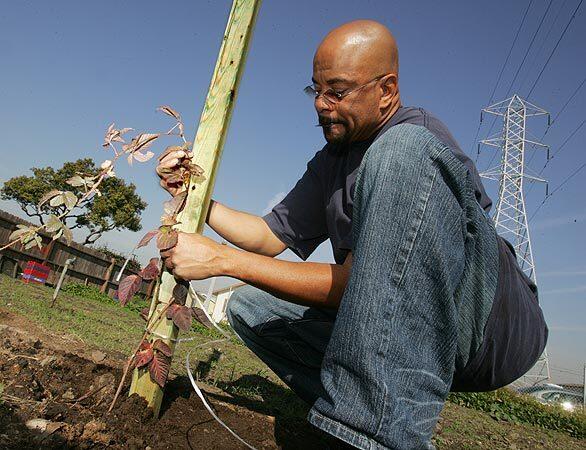
Rudolph Forrest plants a raspberry bush in his assigned plot at his neighborhood community garden, the Stanford Avalon garden in Watts. Forrest, a 51-year-old hospital respiratory technician, has been out of work for nine months. In September, he got a plot at the Stanford Avalon garden and has been working his soil ever since. (Bob Chamberlin / Los Angeles Times)
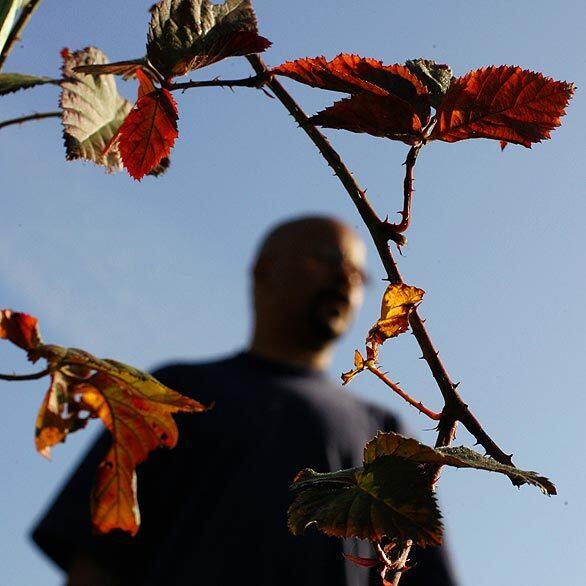
Forrest with a raspberry plant he has just put in his garden plot. A vegan, Forrest plans to eat from his plot, and he hopes to start a business using his crops -- including strawberries, melons and grapes -- for smoothie ingredients. (Bob Chamberlin / Los Angeles Times)
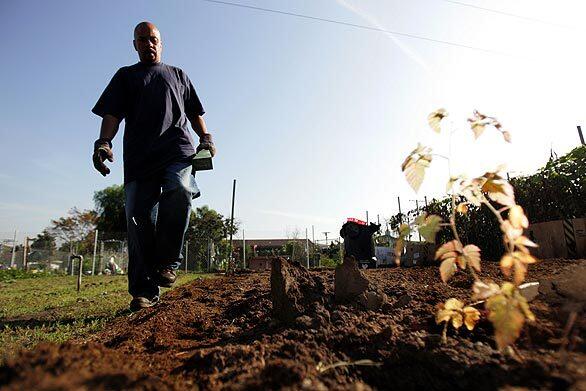
Forrest works on a vine trellis in his garden plot. Like many of the approximately 70 community gardens in Los Angeles, Stanford Avalon has a waiting list. It sits near Locke High School, on a narrow stretch of Department of Public Works land under power lines. (Bob Chamberlin / Los Angeles Times)
Advertisement
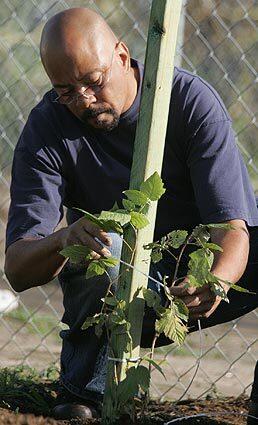
Forrest plants a raspberry bush in his garden plot. The gardeners at Stanford Avalon have relatively big plots, 10 feet by 30 feet. They pay $11 a month for water and maintenance, and some, like Forrest, ultimately will sell what they grow. (Bob Chamberlin / Los Angeles Times)
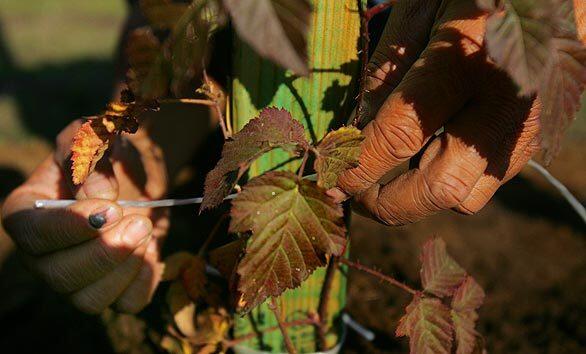
Forrest ties off a raspberry bush. (Bob Chamberlin / Los Angeles Times)
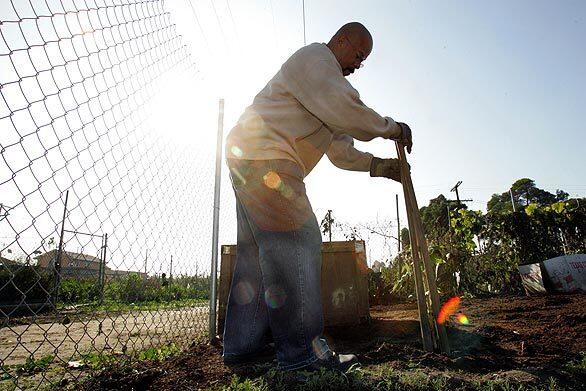
It makes all the sense in the world for me to get a plot, grow my own food and live, Forrest says. (Bob Chamberlin / Los Angeles Times)







